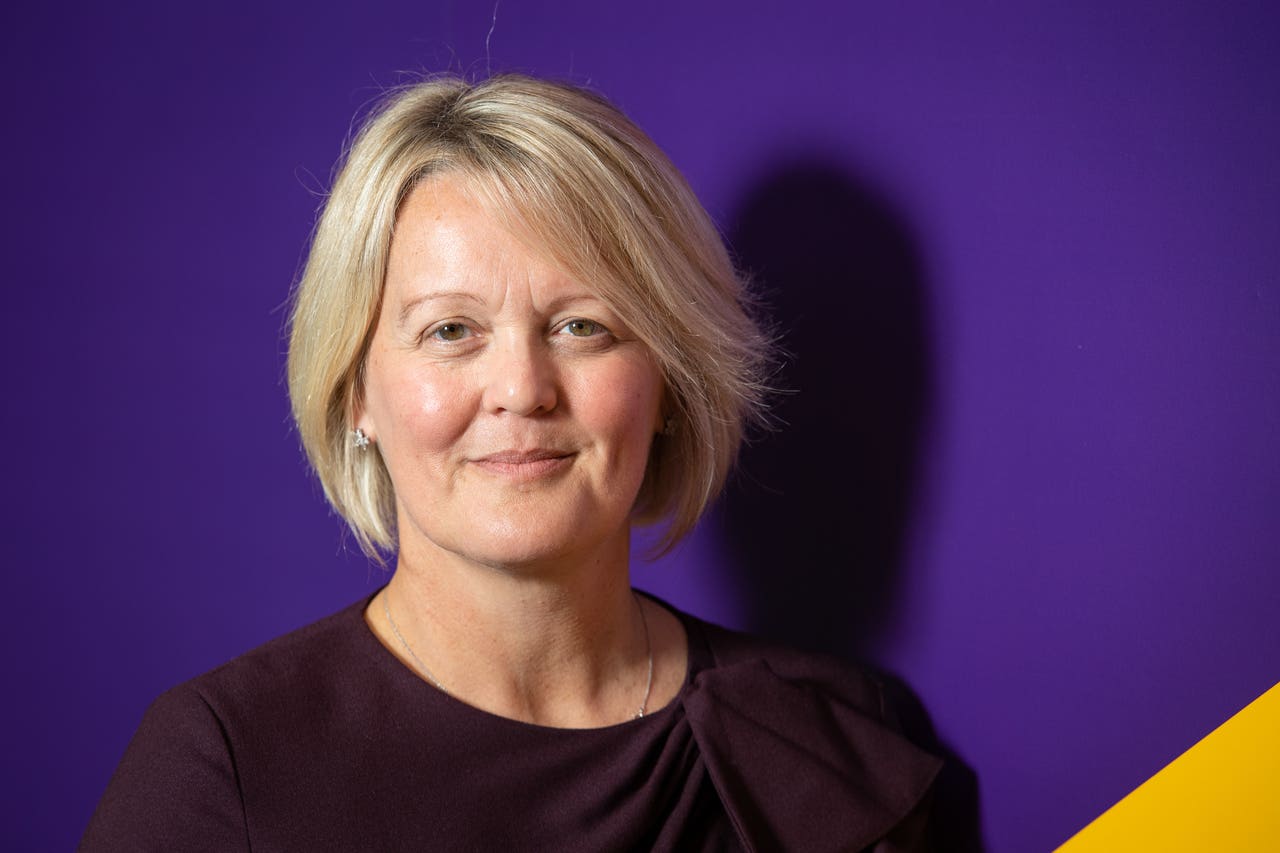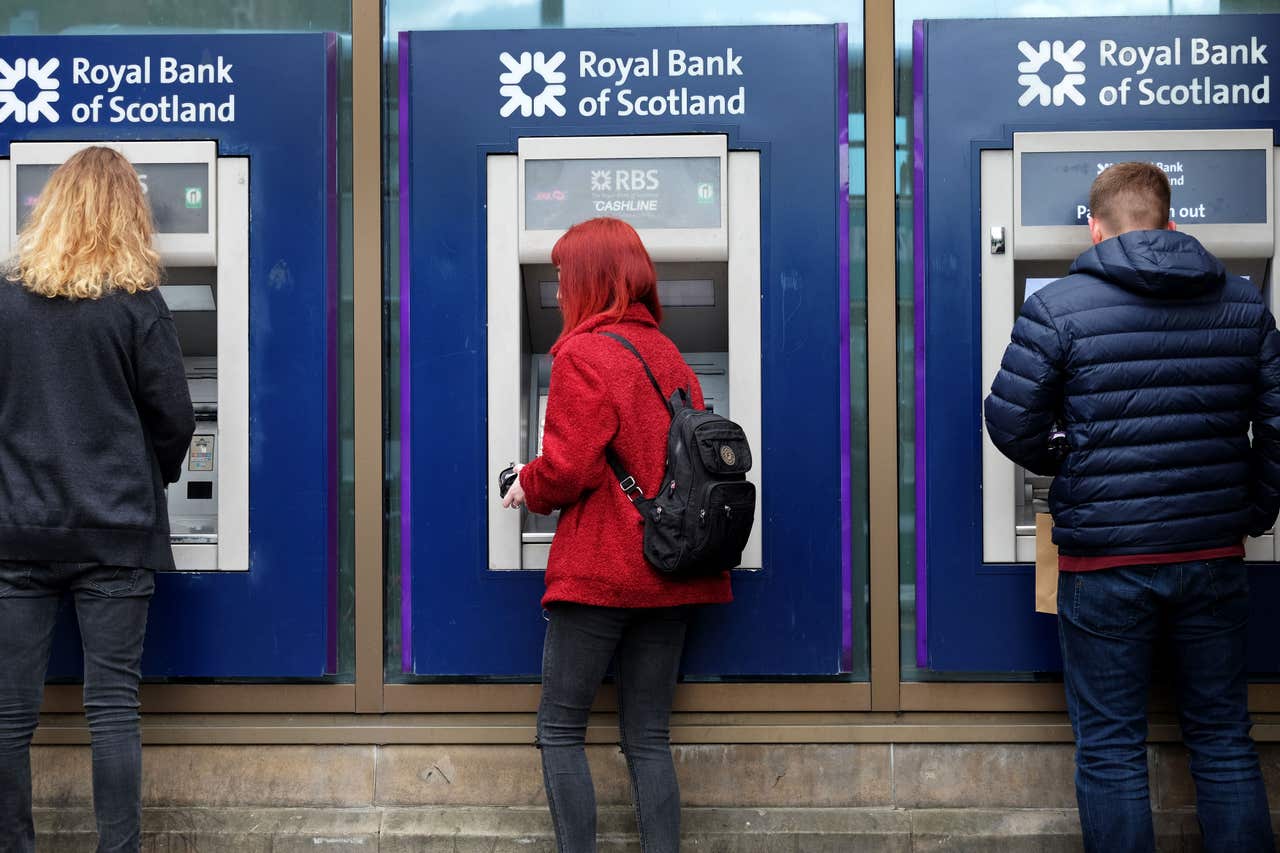Royal Bank of Scotland to be renamed after 293 years
The Government-controlled bank will become NatWest Group and agreed to a 5p-a-share special dividend after profits hit £4.2bn last year.
/arc-anglerfish-arc2-prod-shropshirestar-mna.s3.amazonaws.com/public/FLRIJSGORZFHTELUGOA33GRRW4.jpg)
The Royal Bank of Scotland is to undergo a rebrand in the first major decision by new chief executive Alison Rose, changing its name to NatWest Group plc.
Bosses said the move was because 80% of customers bank with the NatWest brand, rather than through RBS branches, adding that it will have no impact on customers or staff.
Bank branches will continue to trade as RBS and the name will still be heavily associated with the business.
But investors and advisors will now know the listed entity as NatWest Group – changing a name that has been in place since the bank’s foundation in 1727.
Chairman Howard Davies explained: “The essential reason for this is as the bank has evolved from the financial crisis and the bailout, we have focused on the NatWest brand.
“We have exited a lot of the international business which were not profitable. That was branded RBS and that’s gone.
“It really makes no sense for us to continue to be called RBS. It was designed for a global group of brands, which we no longer are.”
He added the registered office will remain in Edinburgh, with no plans for “unscrewing any brass plaques at this point”.
Although a second independence referendum in Scotland could change this, he said.

The decision comes as Ms Rose unveiled a 5p-a-share special dividend, although the full-year dividend was cut from 3.5p to 3p.
It means the bank’s biggest shareholder – the Government – will receive a payout of nearly £600 million.
With the interim dividend paid out earlier this year, it means the taxpayer has been handed £1.7 billion so far this year.
Making the payment is possible because the bank managed to hit an operating profit before tax of £4.2 billion – up 26% from £3.4 billion in 2018.
The results were boosted by the merger of Alawwal Bank and the Saudi British Bank, in which RBS had a stake, but was knocked by an extra £900 million in PPI payments.
Ms Rose also announced cost cuts of £250 million, following the closure of 215 branches over the year.

The next step, according to the boss, is to create a “purpose-led” bank, aligning executive pay with a range of targets linked to long-term bonuses.
The targets include creating 50,000 new businesses by 2023, helping to create 500,000 jobs. RBS added that this would include 75% jobs outside London, 60% women, 20% BAME and 10% “social purpose”.
She also unveiled plans to overhaul RBS’s NatWest Markets investment banking business to reduce any risky assets on its balance sheet, with plans to cut it from £35 billion to £20 billion. Around £6 billion to £8 billion will be cut this year.
However, Ms Rose refused to be drawn on any potential job losses in the year ahead.
She said: “Any job cuts we will speak to our colleagues first so I won’t be making any comment about that.
“We have over 800 branches, our mobile banks and access to the Post Office. We think that’s about the right shape and size, but we will continue to evolve that. You will see the continuing changing of customers.
“In NatWest Markets, we have around 5,000 people employed there, and as we focus on that business, we will keep it under review.”
The bank also revealed plans to teach customers how to save and have a “climate-positive” operation by 2025, with a halving the climate impact of financing activity.
RBS added it wants to ensure 50% of its mortgage book is comprised of properties with an energy efficiency rating of at least C by 2030.
On the rebrand, the bank is keen to shake off its past, and this is the latest cosmetic change made by bosses to remove the stigma attached to the bank nearly collapsing during the financial crisis.
Eight years ago it also recalibrated the shares to make them look more impressive – jumping from 20p to 200p overnight, although the value of the shares remained the same.